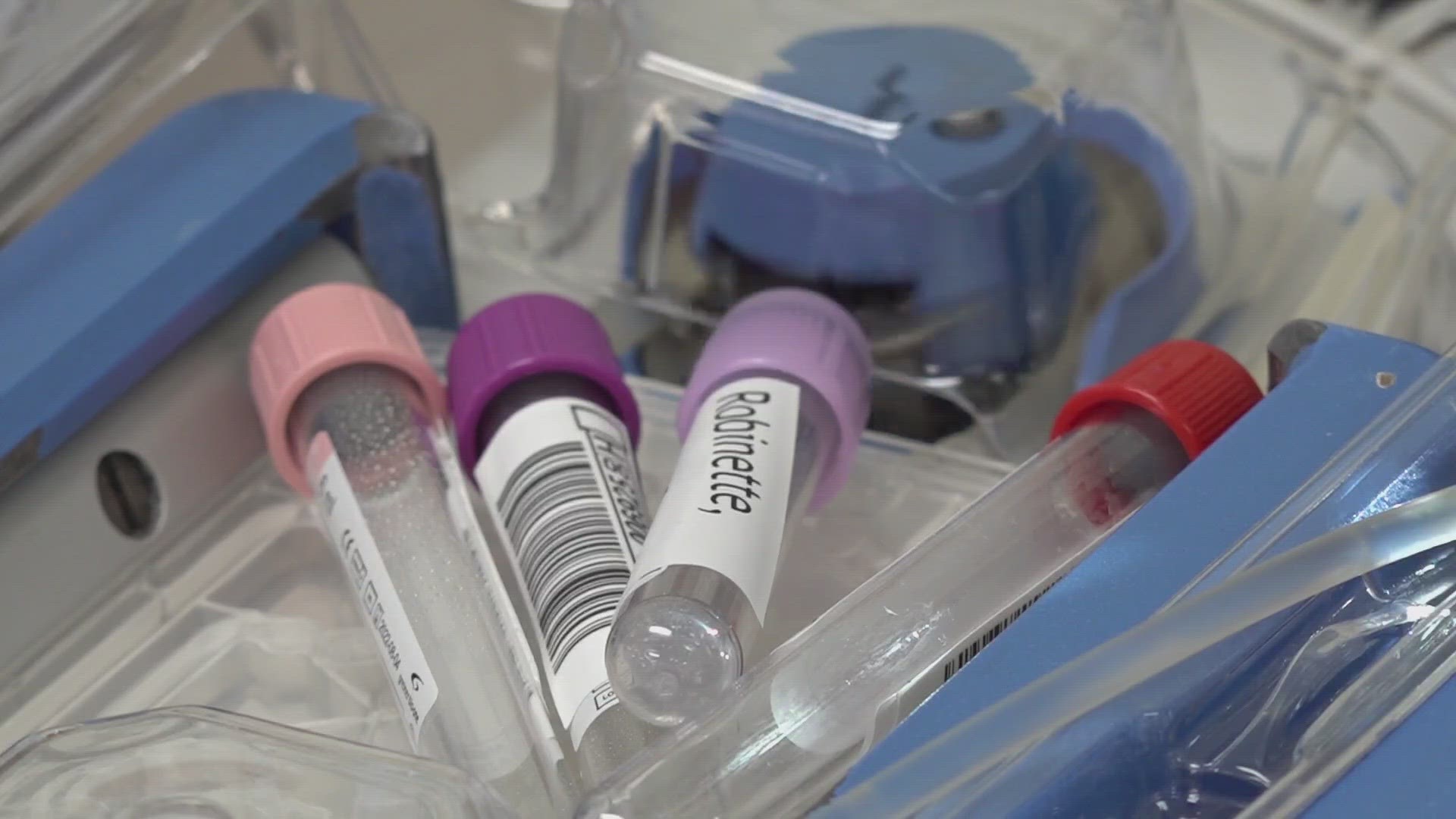KNOXVILLE, Tenn. — The U.S. Food and Drug Administration (FDA) is proposing a change that would allow more people to donate blood as the country continues to deal with ongoing blood shortages.
Under current FDA guidelines, men who have sex with other men must abstain from having sex for 90 days before donating blood. But now, following changes in Canada and the United Kingdom, the FDA is proposing going from time-based deferrals to "assessing blood donor eligibility using gender-inclusive, individual risk-based questions to reduce the risk of transfusion-transmitted HIV."
That is a move Dr. William Schaffner, a professor of infectious diseases at Vanderbilt University Medical Center, is okay with.
"As an infectious disease doctor, I am very comfortable with this new anticipated increased eligibility for blood donations in the United States," Schaffner said.
Schaffner said health experts have been trying to get the FDA to update its guidelines for years.
"There was much less certainty about our knowledge about how the AIDS virus was transmitted," Schaffner explained. "So, in an abundance of caution, we asked men who had sex with men to defer their donation for 90 days."
Schaffner added that, as other countries have made the move to expand blood donation opportunities, it has been proven that the U.S. could follow suit safely.
"The Brits have been doing this, the Canadians have been doing this for several years and have shown that it can be done appropriately, without discrimination, and safely," Schaffner emphasized.
The new proposed guidelines state donors would be asked about new or multiple sex partners in the last three months, which means men in monogamous relationships with other men, like Bleu Copas, would be able to donate.
"I think for us it is important to see the FDA making statements like this to help the community realize that we are not as dangerous as maybe they have imagined," Copas said.
During his time in college, Copas was an ROTC member passionate about serving his community, so he spent much of his time organizing blood drives. However, it was not until he came out as a gay man that his donations were cut short.
"I filled out the form and I sat out there amongst friends waiting to go get my blood drawn and they brought me up for the little counseling session that was normal," Copas remembered of a day more than 20 years ago. "And all of a sudden she said, 'Is this correct?' and I said, 'Yes', with a little bit of pride. And she took a sticker off and placed it on there. It basically was saying that my blood was no longer usable."
Copas said that moment filled him with shame and impacted the way he felt about serving his community. But now he is hopeful he will be able to go back to donating blood, something he said he always loved doing.
"It means a lot to our community, as a gay man, to see the steps being taken realizing that, if we are taking care and making decisions that we feel are responsible and safe, that we can continue to contribute in that way," Copas explained.
The FDA is still keeping some restrictions in place in an effort to prioritize the safety of the country's blood supply. Those include:
- No change in the donor deferral time periods for other HIV risk factors, including for individuals who have exchanged sex for money or drugs or have a history of non-prescription injection drug use.
- Any individual who has ever had a positive test for HIV or who has taken any medication to treat HIV infection would continue to be deferred permanently.
- Blood establishments would still be required to test all blood donations for evidence of certain transfusion-transmitted infections, including HIV, hepatitis B and hepatitis C.
The FDA now has to review and consider comments they have gotten during their open public comment process. The country's blood centers would then implement updated guidance towards the end of 2023 or early 2024.

